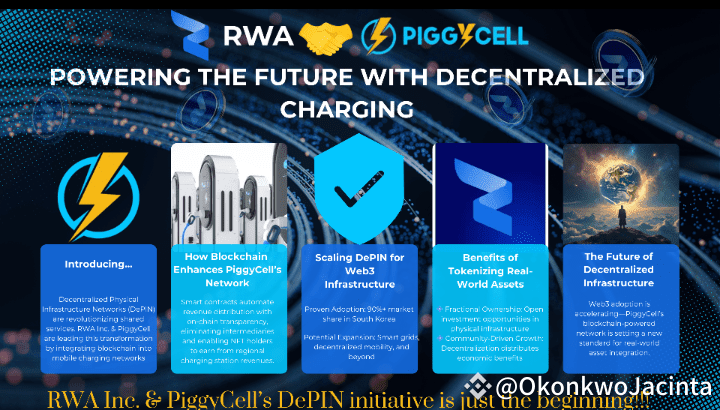The integration of blockchain into physical infrastructure is redefining how services operate. Decentralized Physical Infrastructure Networks (DePIN) are at the forefront of this transformation, enabling trustless, transparent, and equitable systems. The collaboration between RWA Inc. and PiggyCell is a prime example, merging real-world charging infrastructure with decentralized technology
The Role of DePIN in Infrastructure Evolution
PiggyCell, South Korea’s market leader in shared mobile charging solutions, operates over 13,000 stations and 100,000+ deployed batteries. By leveraging blockchain, this infrastructure is now part of a decentralized network that ensures revenue-sharing transparency, reduces operational inefficiencies, and democratizes ownership.
Blockchain Implementation & Revenue Distribution
PiggyCell’s DePIN framework integrates smart contracts for verifiable, on-chain revenue distribution. Unlike traditional models, where centralized entities control profits, this approach allows stakeholders—such as NFT holders representing regional infrastructure—to receive automated, transparent earnings. This creates a more equitable system, where contributions to real-world networks are directly rewarded.
Scaling Web3-Compliant Physical Infrastructure
This decentralized model demonstrates the potential to scale Web3-powered infrastructure globally. With a 90% market share in South Korea’s shared battery industry, PiggyCell’s success signals a viable path for broader adoption in other physical asset networks, such as smart grids and mobility services. Blockchain ensures transparency, efficiency, and interoperability between decentralized infrastructure projects.
Real-World Asset Tokenization & Web3 Evolution
By tokenizing physical infrastructure, the partnership between RWA Inc. and PiggyCell bridges traditional real-world assets with blockchain innovation. This paves the way for fractional ownership, liquidity in infrastructure investments, and the creation of new economic models that empower users rather than corporations.
A New Paradigm in Decentralized Infrastructure
The RWA Inc.–PiggyCell collaboration sets a precedent for integrating Web3 with real-world services. As DePIN adoption grows, decentralized infrastructure models will continue to redefine ownership, efficiency, and accessibility in physical networks.
